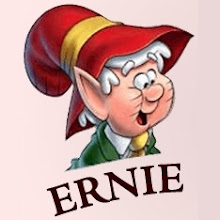
Passports have a funny way of disorganising themselves. The first page of stamps is actually out of order. Later pages contain my first stamps when arriving in Hongkong as a tourist.
On the left page:
The top left box is a square stamp issued by the Japanese authorities when leaving the country. This was the first time I left Japan. I had arrived on the admittance stamp the neighboring cell slightly less than ninety days earlier. They sent me back to New York for "fixed income training". Little did I know that it would serve as an opportunity to mix with my new Japanese co-workers. They sent all new Tokyo hires back to New York for (new) standard fixed income training. Bart and I did our best to welcome them to New York City. Oddly, the relationships I forged then lasted about six months, then largely faded. As the Japanese wedged themselves into the local Tokyo branch, all broke away from the group -- albeit one by one. This was difficult at first because I was under the impression these would be lasting relationships. At the most, I still have regular contact with only one. This is not to say that future groups don't deserve the same kind of "red carpet" treatment that Bart and I sought to offer. Other classes may result in stronger relationships.
The round symbol on this same page is a stamp for my arrival in New York City. Without fail, the JFK airport customs is a terribly frightening experience for Americans as well as foreigners. Bart once told me a story about a Japanese couple on a honeymoon that filled their forms using Japanese characters instead of roman ones. The officer screamed at them "English please!" Bart was fortunate to stand behind them and translate. If civility begins at customs, this couple was in for a rude awakening for the so-called "American experience".
On the alternate page, there is my Hongkong stamp for 7-May-2005. I can remember how scared I was to arrive at the airport. Hongkong is a long and lonely flight to take by yourself. I was flying on a specially modified Airbus planes that could make the journey from JFK to Hongkong in one leg. Sixteen hours in the air was enough to time to consider how crazy and scary my decision was to travel alone halfway around the world. I spent more than a few afternoons in my hotel curled up in a ball trying to sleep away the depression and weird sleep cycle. I had not considered the time change before I left the United States. Twenty years of living in the United States had truly demented my sense of global position and its time.
In the end, every second in Hongkong was worth it. I was so damn proud to be turned away from a traditional Buddhist burial ground in Hongkong when a women informed me that I was looking for another nearby temple. I profusely apologised and walked 100 meters next door to the temple of 10,000 Buddhas. It was rainy, I was lonely, and far from home, but the hot vegetarian meal waiting at the top made the trip worth it.
During my trip to Hongkong, I took a trip to Macau. It is the Tijuana of Hongkong. If you have ever been Tijuana in Mexico, you realise immediately it is a Sin City where
everything is for sale -- women, booze, drugs. The day that I went to the Macau ferry port on Hongkong Island, I frantically searched for my passport unable to find it. Enraged at my stupidity I rode the subway back to my hotel across the harbor in Kowloon. I turned over my room twice only to realise my passport was in my shoulder bag the entire time. I rushed back to the ferry port to make it to Macau by early afternoon. What a waste!
That trip was "worth" an exit and entrance stamp from Hongkong and an arrival and exit stamp in Macau. The experience was more than worth the one thousand dollars I spent for the flight from New York to Hongkong. The return flight left such a impression that I remember my aeroplane meal for more than a year. I spent the next eighteen months searching for the sweet tofu that I had for breakfast. Only when I was searching for breakfast in a convenience with Richard was he able to tell me that it was called anin tofu (sweet tofu).
 "How was your stay in Singapore?" asked the guard at the Singapore Airport, prior to entering customs. Surprised by the question, I answered from the gut, "Amazing." He smiled honestly. "That's great to hear." He inspected my passport briefly, and said, "Have a nice day."
"How was your stay in Singapore?" asked the guard at the Singapore Airport, prior to entering customs. Surprised by the question, I answered from the gut, "Amazing." He smiled honestly. "That's great to hear." He inspected my passport briefly, and said, "Have a nice day."




